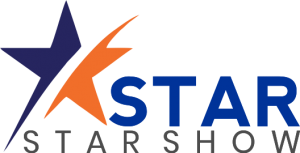
For those interested in forming a company in Switzerland, knowing the differences between two of the most common types of companies can help make a decision.
AG vs. GmbH
These business structures are AG, a public limited company, and GmbH, a limited liability company. Another way to refer to these companies is SA and SARL, respectively.
Overview of the AG and GmbH Business Structures
The AG and GmbH companies’ main differences lie in the legal requirement needed for their formation and other important factors. Both company structures have limited liability, meaning that the shareholders are only liable to the extent of their contributions to the capital.
An important distinction between them is that although both allow the transfer of company shares, AG companies’ process is more accessible than GmbH, where the process is more tedious and complicated. This difficulty comes from the fact that the register entry must be changed with every share transfer because the commercial register lists GmbH shareholders by name.
Forming AG and GmbH companies is an efficient and straightforward process, especially with the help of platforms such as Newco. The procedure itself only takes around one or two weeks to complete, assuming that every legal requirement and condition is fulfilled. Companies registered as AG and GmbH can transfer the company’s domicile from one Swiss canton to another, but taxation depends on the management’s residency.
Required Capital to Start and Stock Split
Founding an AG is the costly option of the two, requiring a minimum share capital of 100000 CHF. Companies must pay 20% of the total sum upon formation, but it has a minimum deposit of 50000 CHF.
For example, if a company wants to start with a share capital of 500000 CHF, the required deposit would be 20% of it, being 100000 CHF. If it is 150000 CHF, the deposit necessary would be the minimum sum of 50000, as 20%, being 30000 CHF, wouldn’t cover the minimum amount. AG companies’ minimum face value is 0.01 CHF, allowing flexibility when splitting the formed company’s share capital.
On the other hand, Swiss GmbH companies have a minimum share capital of 20000 CHF, with the requirement of depositing the entire sum upon incorporation.
The downside is that the minimum par value is 100 CHF, so allocating shares below this value isn’t possible. Bearer shares aren’t allowed in GmbH companies, and for an AG, bearer shares are allowed once the company pays the whole share capital amount.
Management Requirement
AG businesses require a minimum of one director and one shareholder with the condition that the director is a Swiss resident. If there are more than one, the majority of them must be Swiss.
The Board of Directors can consist of only one director. When there is more than one, everyone present must sign passed resolutions and decisions, unless stated otherwise on the Articles of Association.
Annual general meetings for shareholders are required. Usually, the Board of Directors call these meetings, but a company auditor can do it in some situations. If a shareholder possesses more than 10% of the company’s stated capital, they can request a general meeting from the Board of Directors.
GmbH businesses have similar requirements, with the exception that a Board of Directors is not required. Annual general meetings for shareholders are required, but there aren’t exceptional circumstances. Both business structures must maintain a local registered office and agent in Switzerland to accept and process official notices.
Taxation
New businesses, regardless of the type, must apply to the Federal Tax Administration after the Commercial Registry approves of their registration to get their corporate tax and VAT number. Federal taxes on profits stay constant at 8.5%, whereas cantonal tax profits vary from 3.5% to 13.5%. The VAT rate is among the lowest in Europe, being 7.7% for most goods and services.
Reporting and Disclosure Requirements
Details of a beneficial owner or owners of an AG are not publicly available. The company director’s details are on public record as its information is introduced in the commercial registry. AG companies’ shareholder information may remain undisclosed, which isn’t the case for GmbH shareholders. B
oth company structures must file annual financial reports, and audits are required of companies that meet two criteria of the following: 40 million or more CHF turnover, possess assets worth 20 million or more CHF, or have more than 250 employees.

